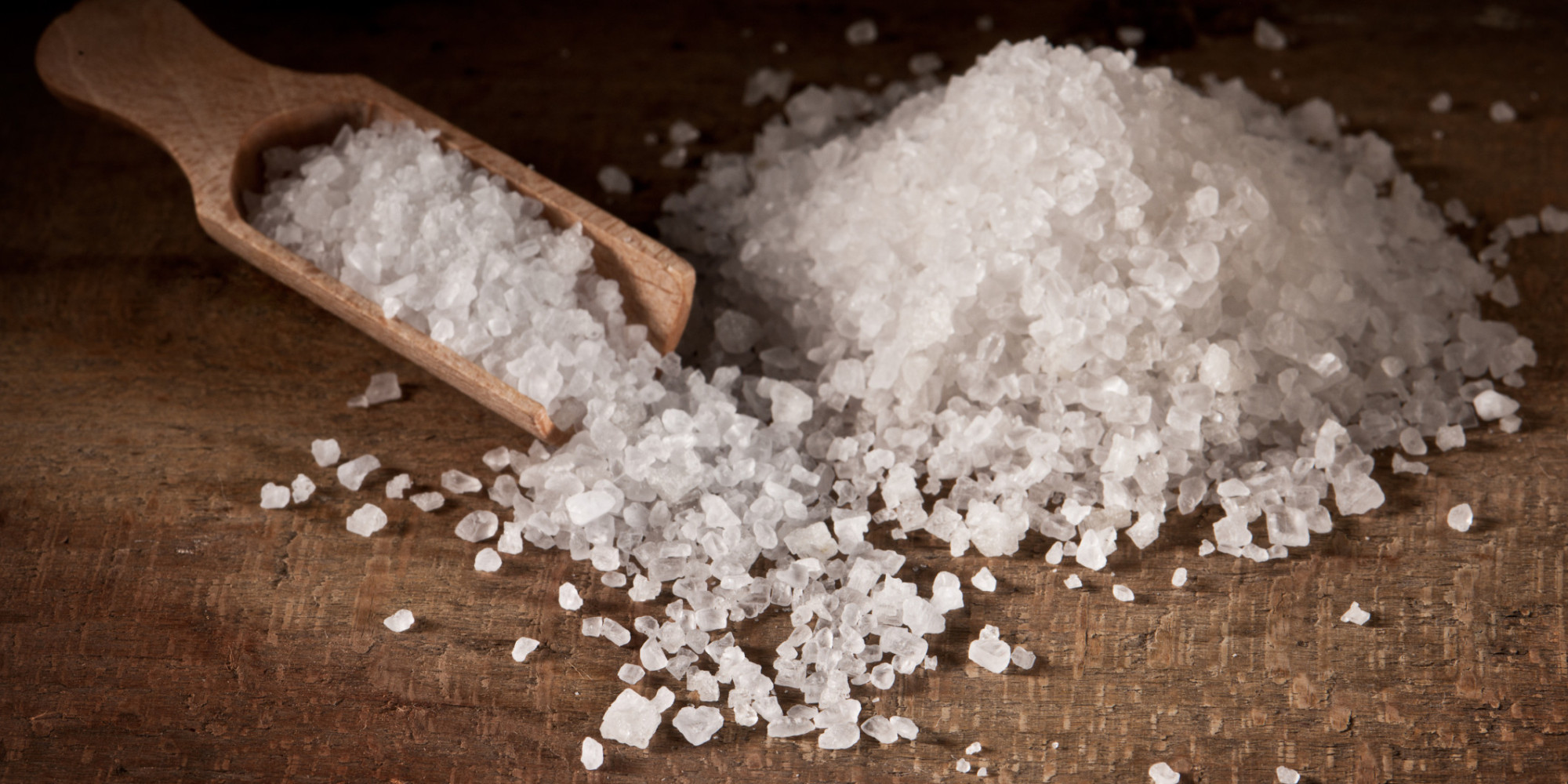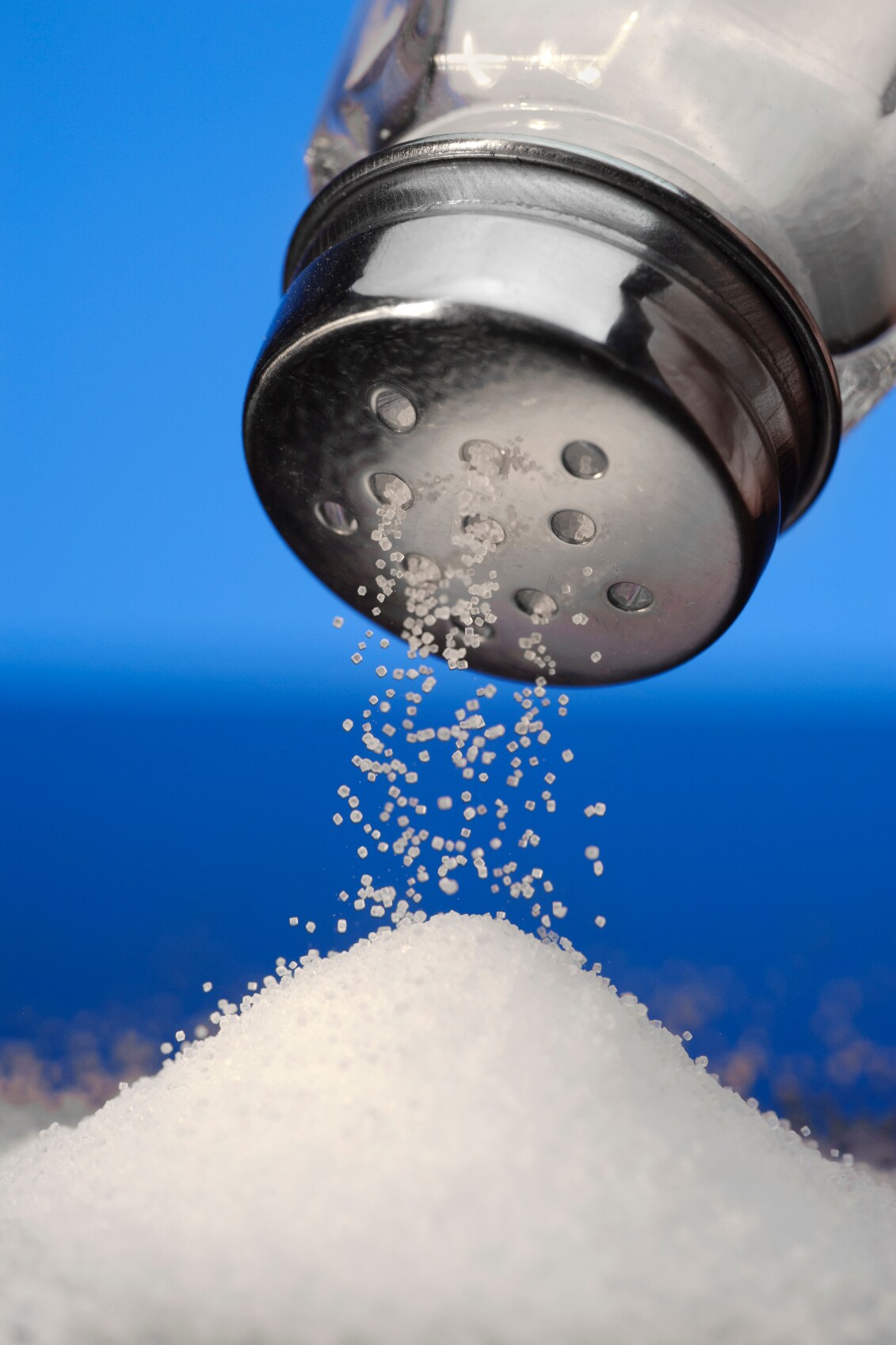Salt On Dick: Unpacking The Surprising World Of Sodium Chloride And Everyday Connections
Detail Author:
- Name : Rolando Denesik
- Username : bernadette.bauch
- Email : jovany08@yahoo.com
- Birthdate : 1986-04-24
- Address : 81801 Nellie Prairie West Lennie, NJ 87840-0144
- Phone : 564-580-9792
- Company : Veum, Little and Nicolas
- Job : Mining Machine Operator
- Bio : Omnis molestias vel voluptatem itaque ut placeat quidem. Sit velit impedit et. Saepe velit voluptas sit porro inventore. Mollitia aut ut iste assumenda qui repellendus rerum.
Socials
tiktok:
- url : https://tiktok.com/@dockosinski
- username : dockosinski
- bio : Quidem provident fugit accusantium nisi.
- followers : 893
- following : 1046
facebook:
- url : https://facebook.com/dock_real
- username : dock_real
- bio : Quia nobis optio velit sed cum et.
- followers : 2415
- following : 2804
linkedin:
- url : https://linkedin.com/in/dock_xx
- username : dock_xx
- bio : Quo vitae nam rerum possimus.
- followers : 3623
- following : 180
instagram:
- url : https://instagram.com/dock.osinski
- username : dock.osinski
- bio : Nostrum repellendus aspernatur enim architecto. Adipisci dolorum qui fugit.
- followers : 1292
- following : 134
twitter:
- url : https://twitter.com/dock.osinski
- username : dock.osinski
- bio : Possimus hic placeat laudantium. Eos dolor eum ut saepe ut eligendi. Rerum odio et quidem excepturi labore.
- followers : 3483
- following : 1992
When you hear the phrase "salt on dick," it might, you know, grab your attention, perhaps even make you wonder what exactly that means. Really, though, this interesting combination of words serves as a curious starting point, a little spark, to explore something truly fundamental: salt itself. As a matter of fact, salt, the very substance, is a vital mineral that touches so many parts of our daily existence, far beyond any unusual phrasing.
It's fascinating, actually, how one simple word like "salt" can hold so many different meanings and roles in our lives. From its basic form as a mineral we use in our kitchens, to its deeper scientific properties, and even, apparently, to how it names essential modern services, salt truly has a multifaceted presence. This article, you see, aims to unravel these different layers.
We'll take a closer look at what salt really is, chemically speaking, and why our bodies need it. Then, we'll shift gears a bit to explore how the idea of "salt" extends into the world of daily connectivity and customer care. So, in a way, get ready to discover the surprising versatility of this common yet incredibly important element.
Table of Contents
The Core of Salt: A Fundamental Mineral
- What Exactly Is Salt?
- Salt's Role in Our Food
- Salt and Your Body's Well-being
- Salt's Place in Chemistry
The Broader Reach of "Salt": Essential Services and Connections
- "Salt" as a Name for Modern Services
- Managing Your "Salt" Account and Connectivity
- The Unexpected Facets of "Salt"
Understanding Salt's Impact
Frequently Asked Questions About Salt
The Core of Salt: A Fundamental Mineral
Basically, when we talk about salt, we're usually thinking of that common white stuff we sprinkle on our food. In common usage, salt is a mineral composed primarily of sodium chloride, or NaCl. It's a rather simple compound, yet its importance is just huge, you know?
What Exactly Is Salt?
A crystalline compound, sodium chloride, NaCl, occurs as a mineral. It's a major constituent of seawater, for instance, which is pretty cool to think about. This means it's naturally occurring, found all over our planet. Salt mainly comprises the minerals sodium and chloride, and these two elements are really important for many things.
In the form of a natural mineral, it's often mined from the earth. When used in food, especially in granulated form, it is more formally called table salt. So, while it's all salt, there are, you know, different ways we refer to it depending on its form and use. It’s quite interesting how one substance can have so many descriptive names, isn’t it?
Salt's Role in Our Food
Salt is probably the most used spice, which is saying something! We use it for seasoning food, and as a preservative, too. Think about how long cured meats or pickled vegetables can last; salt plays a huge part in that. It's not just about taste, actually, it's about keeping things fresh.
From table salt to flaky sea salt and pink salt to truffle salt, we’re covering 19 types of salt and how to use them in this comprehensive guide. There are so many kinds, each with its own unique texture and subtle flavor differences. Learning about them can really make your cooking, you know, a bit more exciting. You might find a new favorite!
Salt and Your Body's Well-being
Salt is a mineral needed for the body's nerves and fluid levels. It has many important functions in your body and is prevalent in many foods. While your body needs some salt to function properly, there’s a delicate balance involved. How does having too much or too little affect our health, and how much should we consume? These are important questions, really.
Learn more about this mineral, its history, health benefits, and why so many people crave it, and you just may start enjoying salt more on every level. It's a bit like a hidden hero in our bodies, quietly working behind the scenes to keep things running smoothly. Getting the right amount is key, you know, for feeling your best.
Salt's Place in Chemistry
In chemistry, the term salt generally refers to any compound that results from the interaction of an acid and a base. This is a bit different from how we use it in the kitchen, obviously. In chemistry, a salt is an electrically neutral chemical compound consisting of cations and anions connected by an ionic bond. The classic example is table salt, or sodium chloride, which is pretty cool.
So, while table salt is a common example, there are, you know, many other chemical compounds that are also classified as salts. In the fields of geology and agriculture, the term salt is used as a broader concept, too, referring to various mineral compounds found in soil or rock formations. It’s fascinating how one word can have such precise, yet different, meanings across various scientific disciplines, isn't it?
The Broader Reach of "Salt": Essential Services and Connections
Beyond its chemical and culinary definitions, the word "salt" also pops up in some rather unexpected places, sometimes as a brand name. This is where the concept of "salt on dick" truly becomes just a phrase that leads us to explore the broader, perhaps less obvious, ways the word "salt" touches our lives. It’s about how we manage our essential services, actually, and stay connected in the modern world.
"Salt" as a Name for Modern Services
You might, for instance, come across "Salt New York" products in stock, or hear about "Salt Mobile" and "Salt Home" services. These are, you know, examples of how a powerful, simple word like "salt" can be used to name companies that provide essential services. They offer things like internet haut débit, which is high-speed internet, and divertissement TV infini, meaning endless TV entertainment, plus téléphonie fixe, or landline phone service. It's really about staying connected, isn't it?
Outstanding mobile network services, like those offered by "Salt," aim to provide a fast and reliable network. This kind of service, officially ranked outstanding in this year’s connect test, highlights the importance of strong, consistent connections in our daily routines. It's about making sure you can always reach out and stay informed, which is pretty vital.
Managing Your "Salt" Account and Connectivity
To manage your subscriptions, you can log in to your "Salt Mobile" and "Salt Home" customer account. This is where you can view and pay your bills, access the latest events on your billing account, and view your usage. It’s all about having control over your services, which is pretty important for anyone.
My account is a free service which can be accessed online via any browser. It allows you to easily monitor and manage your subscription, buy and pay for devices, or prepay vouchers, etc. It’s a convenient way to keep track of everything, you know, without much fuss. Simple, fast, and personal —start your conversation with us today! That's the idea behind good customer service, really.
You can access your "Salt Mobile" or "Salt Home" account, view and pay your bills, access the latest events on your billing account and view your usage. You can also view your personal offers. This kind of online management makes life just a little easier, doesn't it? It’s all in one package, easy to install, making sure you get what you need without a lot of trouble.
The Unexpected Facets of "Salt"
It’s rather interesting how the word "salt" can even pop up in contexts completely unrelated to minerals or services. For example, the salt deduction allows taxpayers who itemize to subtract certain state and local taxes from their federal taxable income. These taxes include state property taxes and income taxes. This is a very different kind of "salt," isn't it?
This shows how versatile language can be, really. A single word can carry so much meaning, from a basic chemical compound to a brand name for essential services, and even, you know, a specific term in tax law. It just goes to show that words, much like salt itself, have many layers to them. It’s quite a journey to explore them all.
Understanding Salt's Impact
From its role as a fundamental mineral essential for our bodies to its presence as a name for services that keep us connected, salt, in its many forms and meanings, is just everywhere. It shapes our food, influences our health, and even names the digital pathways we use every day. So, the next time you encounter the word "salt," perhaps even in an odd phrase like "salt on dick," consider the vast and varied world it truly represents. It’s a testament to how simple elements can have such profound and wide-reaching effects on our lives, you know, in so many different ways. We invite you to learn more about salt on our site, and also explore other fascinating elements that shape our world.
Frequently Asked Questions About Salt
What is the main chemical component of common table salt?
The main chemical component of common table salt is sodium chloride, often written as NaCl. It's a very simple compound, actually, made up of just two elements.
Why is salt important for the human body?
Salt is pretty important for the human body because it helps with nerve function and maintaining proper fluid levels. It plays a crucial role in many bodily processes, so it's vital to have some, you know, in your system.
Are there different types of salt used in cooking?
Oh, absolutely! There are many different types of salt used in cooking, like table salt, sea salt, pink salt, and even truffle salt. Each one has its own unique texture and can, you know, bring a slightly different flavor to your dishes.


